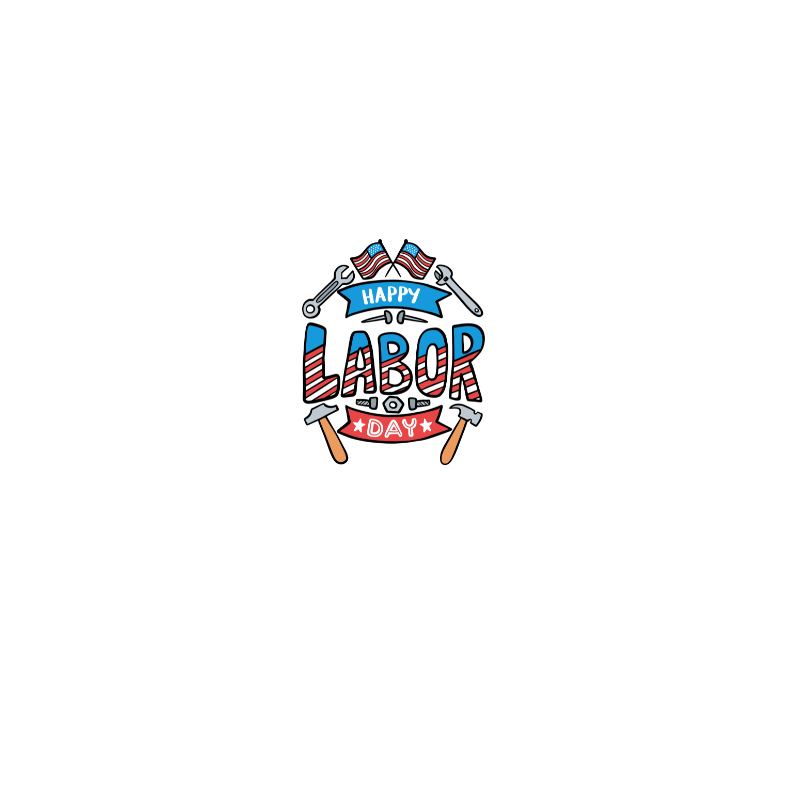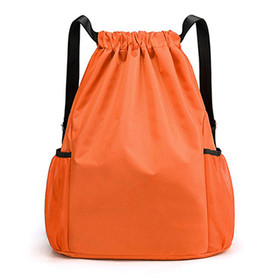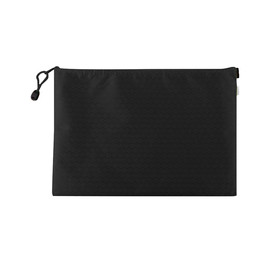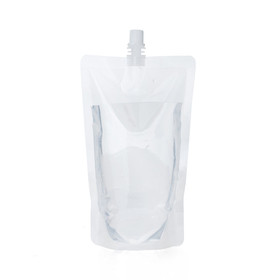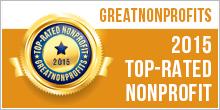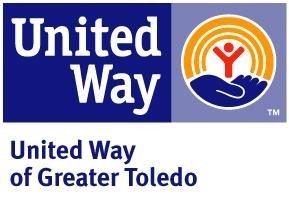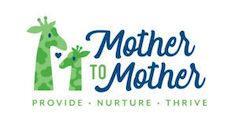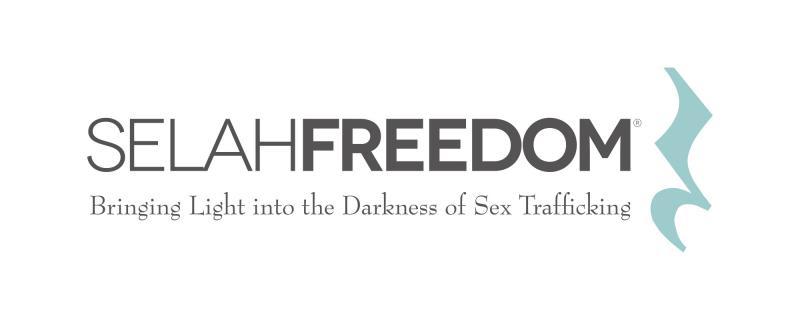Causes: Human Service Organizations, Human Services
Mission: Help of southern nevada (the organization) is a nonprofit corporation whose mission is to assist families and individuals throughout southern nevada to overcome barriers and attain self-sufficiency through direct services, training and referral to community resources. The organization is primarily supported through government grants, program fees, and contributions from the general public.
Programs: Homesless services help of southern nevada (help) has been providing housing and case management to homeless individuals/families for over twenty years. Help has been working with the chronically homeless population since 2005.When the pilot project organizations united to reach educate and assist the chronically homeless (o. U. T. R. E. A. C. H. ) began. This project was implemented to assist the chronically homeless using the housing first and harm reduction model, in which clients are immediately housed and then barriers are worked on. In july 2014, coordinated intake began in clark county. Any household without children identifying as chronically homeless will be referred to clark county for a housing assessment. Once completed, clark county will send the referral to a provider who has a vacancy to fill. Help's new beginnings, help them home, cabhi and healthy living programs provide housing and intensive case management to chronically homeless individuals, who have a documented disability. These programs focus on providing supportive services to clients to overcome barriers to becoming self sufficient and self-reliant. All intensive case managers (icm) are ssi/ssdi outreach, access and recovery (s. O. A. R. ) certified by the social security administration. This allows the icm to expedite the benefits application for our clients with permanent disabilities. The icm are also snap (supplemental nutritional assistance program) certified. This allows the icm to assist the client with the application process for food stamps. There are now 13 housing quality standard inspectors (hqs) to ensure when clients are moving in to their apartments, it meets or exceeds the housing authorities standards. These clients are connected with service to stabilize their mental health issues and address other barriers that have lead to their homelessness. The main goal is designed to provide services to persons who are chronically homeless with a disability and find appropriate housing while engaging in treatment to overcome their barriers to becoming self-sufficient. Program statistics for the fiscal year 2016/2017: -number of clients who participated in the program year: 1.New beginnings - 161 2.Help them home -50 3.Healthy living - 50 4.Cahbi - 5 (program was active from july 1,2016 to feb 8,2017) -number of clients discharged throughout the program year: 1.New beginnings - 45 2.Help them home - 17 3.Healthy living - 14 4.Cabhi - 5 -number of clients brought on to caseload: 1.New beginnings - 31 2.Help them home - 15 3.Healthy living - 10 4.Cabhi - 0 -number of active clients at the end of the program year: 1.New beginnings - 150 2.Help them home - 33 3.Healthy living - 47 4.Cabhi - 0 -percentage of clients with substance abuse issues: 1.New beginnings = alcohol - 68%, drug abuse - 63.2%, mental health - 83%, chronic health - 21.2% 2.Help them home = alcohol - 68%. Drug abuse - 52%, mental health - 82%, chronic health - 38% 3.Healthy living = alcohol - 66%, drug abuse - 44%, mental health - 66%, chronic health - 100% 4.Cabhi = alcohol - 69.2%, drug abuse - 61.5%, mental health - 100%, chronic health - 46.2% - clients with stable exits from the program: 1.New beginnings - 24 2.Help them home - 8 3.Healthy living - 4 4.Cabhi - 5 - clients who are veterans: 1.New beginnings - 2 2.Help them home - 0 3.Healthy living - 0 4.Cabhi - 1 -percentage of clients who increased jobs, income and exited to know destinations: 1.New beginnings a. Employment = 6.1% b. Increased or sustained other case income - 24.1% c. Improved education - 14.2% d. Exited to known destinations - 100% 2.Help them home a. Employment = 0 b. Increased or sustained other cash income - 20% c. Improved education - 2% d. Exited to known destinations - 100% 3.Healthy living a. Employment - 4% b. Increased or sustained other cash income - 24% c. Improved education - 0.0% d. Exited to known destinations - 100% 4.Cabhi a. Employment - 0% b. Increased or sustained other cash income - 30.8% c. Improved education - 0% e. Exited to known destinations - 100% as of july 1,2017, path and mcit separated from homeless services to form the crisis teams department at help of southern nevada. Help's path program serves the severely mentally ill clients. Path has been serving clients since march 2013.These clients are connected with service to stabilize their mental health issues and address other barriers that have lead to their homelessness. The mobile crisis intervention team (mcit) conducts interventions, abatements and health & safety checks throughout all jurisdictions at the direction of clark county. They work in tandem with all service providers to encourage homeless individuals and families living in places not meant for human habitation to engage in services. Path and mcit teams went to 298 tunnels in 2016/2017 to warn individuals regarding the possibility of flooding and offer services to individuals who reside in those tunnels. The teams responded to outreach requests 372 times by clark county social services, department of public works, lvmpd, and city and county officials as well as parks and recreation this year. -number of outreaches conducted 2016/2017 1.Path - 466 2.Mcit - 3161 -number of individuals contacted and offered services 2016/2017 1.Path - 1006 2.Mcit - 7571 -number of housing assessments and referrals to the queue 2016/2017 1.Path - 193 2.Mcit - 965 -number of clarity cards issued to clients in the field 2016/2017 1.Path - 10 2.Mcit - 245 -number of referrals to individuals for mental health evaluation/services 2016/2017 1.Path - 385 2.Mcit - 387
weatherization assistance program assists low-income households by conducting energy efficient assessments/audits. These audits will determine what the home needs and will be addressed based on a priority list of energy efficient measures that will be installed in qualified client homes. Priority is given to homes owned or occupied by senior citizens, households with children under six, or disabled clients to assist for a safe and healthy home and in reducing their monthly utility costs. Our program provides measures such as heating and air conditioning repair or replacement, water heater and oven replacement, solar screens, attic insulation, refrigerators, weather-stripping, low-flow showerheads, led and compact florescent light bulbs, and other energy saving measures. A total of 387 homes were served during the 2016/2017 program year.
emergency resource services (ers) eemergency resource services (ers) provides assistance to low-income households that are literally homeless or at imminent risk of homelessness. Services provided by ers include, but are not limited to, intensive case management, rental and utility assistance, food vouchers, interview and application for supplemental nutrition assistance program (snap) benefits, application for energy assistance program (eap), energy share or project reach, tenant based rental assistance, permanent supportive housing, rapid re-housing, and homeless prevention. During fiscal year 2016/2017, ers received 2,702 applications for services. Below are unduplicated numbers for households who received specific services: - 304 interviews for snap benefits and applications submitted - 42 households provided assistance with project reach applications submitted - 35 households provided assistance with eap applications - 178 households received utility assistance through energy share - 8 households received rental assistance, avoiding homelessness - 28 households received rapid rehousing services - 30 households enrolled in tenant based rental assistance - 41 households received permanent supportive housing services - 2,813 food vouchers issued for pantry services. Also under ers is our baby first services (bfs). Bfs provides pre and postnatal guidance to first-time mothers, at-risk teens, and at-risk women in our community to reduce the risk of low birth weight and infant mortality. During the 2016/2017 fiscal year, 316 pregnant or parenting women and their babies received assistance. Some services provided by bfs include, but are not limited to, case management support, smartshop healthy habits classes, becoming a mom, safe sleep for your baby and pack n play, assistance with food cards, bus passes, diapers and wipes, formula, and other baby items.
work opportunities readiness center (w. O. R. C. ) (w. O. R. C) provides services that empower participants to enter or re-enter the labor market. Workshops, support groups and networking, one-to-one personal or vocational counseling, job seeking/keeping methods, leadership development, decision-making skills development, and assistance with developing an action plan are among the resources used to help participants build confidence, identify skills, and seek training or employment. Through the displaced homemaker program, w. O. R. C. Assists both men and women to evaluate their current employment needs, then offers free week- long workshops to sharpen job seeking skills, as well as helping with job referrals and placement. In 2016/2017, help served 182 adults who had recently lost his or her primary source of income due to job lay-offs, divorce, death, or disability. In addition, through the workforce innovation and opportunity act act-wioa, funded by workforce connections- wc, help of southern nevada one stop center provided support/training/employment activities to unemployed & underemployed adults to help them re-enter the workforce and achieve gainful employment. In addition, help's wioa youth program provided employment & training activities to low income, at-risk youth, who had dropped out of high school, ages 16-24 in clark county and unincorporated areas of sandy valley and searchlight with long term outcomes such as: basic educational and employment skills, completion of academic certificates (including high school diplomas and equivalents) and placement in employment, post- secondary education and/or training. In 2016/2017, help served 319 unduplicated adults and at-risk youth with wioa programs. Help's w. O. R. C department served 501 clients in py 2016/2017.Shannon west homeless youth center (swhyc) shannon west homeless youth center (swhyc) provides services for at-risk youth that are homeless or are at risk of becoming homeless. The youth center motivates residents towards reaching self-sufficiency by providing the training and skills to further their education, employment, social and life skills. The residential and day programming enables youth to learn skills necessary to succeed as adults. By collaborating with a number of agencies, we have the resources to provide the following services on site: intensive case management, substance abuse counseling, mental health referrals, educational assessment, vocational training, and life skills groups focusing on a variety of issues such as anger management, independent living, money management, peer socialization, consumer and problem solving skills, and health education. Help of southern nevada is in the process of building a new 37,000 square ft. Building to relocate the shannon west homeless youth center to 1650 e. Flamingo road. This will provide the residents with additional support from social services agency and educational institutions in the area. This area also has increased employment potential for the residents. This new building will have the capacity to house up to 166 homeless youth. Program statistics for the fiscal year 2016/2017: youth served -339 males- 247 females-89 transgender-3 enrolled in high school- 43 attending college- 1 attending adult education- 9 received substance abuse treatment- 52 received mental health treatment- 28 community alternative sentencing (cas) community alternative sentencing (cas) program allows court appointed volunteers the opportunity to serve the community, save taxpayers the cost of incarceration, and provide manpower to non-profits and government agencies. During the 2016/2017 fiscal year, community service workers contributed a total of 144,092 hours. The cas department stopped serving clients as of july 1,2017.Framing hope warehouse (fhw) framing hope warehouse (fhw) provides donated home depot products to registered 501 c 3 organizations for a low administrative fee. As of fiscal year 2016/2017, fhw has 160 registered members and have cumulatively saved member organizations in excess of 1.5 million. Community outreach help holiday programs consist of thanksgiving assistance, holiday toy assistance, and adopt-a-family. Clients receiving thanksgiving assistance receive a frozen turkey and groceries to prepare a traditional thanksgiving meal, including mashed potatoes, stuffing, cranberries and more. In fiscal year 2016 - 2017,1,024 families received thanksgiving assistance from help of southern nevada. Holiday toy assistance allows up to 3,000 needy southern nevada families to receive holiday toys for their eligible children directly through help who, without this assistance, would otherwise do without. In fiscal year 2016 - 2017,1,922 families, representing 5,199 children received holiday toy assistance from help of southern nevada. 65 agencies in southern nevada were assisted with toys, bikes and gift cards because of the holiday toy assistance program at help. Adopt-a family allows community members the opportunity to 'adopt' local pre-qualified families from the pool of those who apply for holiday assistance through help, who find themselves in unique and compelling situations during the holiday season. Sponsors purchase items from a list of toy and clothing preferences and these items are provided to the pre- qualified family anonymously. In fiscal year 2016 - 2017,439 families, representing 1,210 children, were "adopted" for the holidays through help of southern nevada.
Mission: Help of southern nevada (the organization) is a nonprofit corporation whose mission is to assist families and individuals throughout southern nevada to overcome barriers and attain self-sufficiency through direct services, training and referral to community resources. The organization is primarily supported through government grants, program fees, and contributions from the general public.
Programs: Homesless services help of southern nevada (help) has been providing housing and case management to homeless individuals/families for over twenty years. Help has been working with the chronically homeless population since 2005.When the pilot project organizations united to reach educate and assist the chronically homeless (o. U. T. R. E. A. C. H. ) began. This project was implemented to assist the chronically homeless using the housing first and harm reduction model, in which clients are immediately housed and then barriers are worked on. In july 2014, coordinated intake began in clark county. Any household without children identifying as chronically homeless will be referred to clark county for a housing assessment. Once completed, clark county will send the referral to a provider who has a vacancy to fill. Help's new beginnings, help them home, cabhi and healthy living programs provide housing and intensive case management to chronically homeless individuals, who have a documented disability. These programs focus on providing supportive services to clients to overcome barriers to becoming self sufficient and self-reliant. All intensive case managers (icm) are ssi/ssdi outreach, access and recovery (s. O. A. R. ) certified by the social security administration. This allows the icm to expedite the benefits application for our clients with permanent disabilities. The icm are also snap (supplemental nutritional assistance program) certified. This allows the icm to assist the client with the application process for food stamps. There are now 13 housing quality standard inspectors (hqs) to ensure when clients are moving in to their apartments, it meets or exceeds the housing authorities standards. These clients are connected with service to stabilize their mental health issues and address other barriers that have lead to their homelessness. The main goal is designed to provide services to persons who are chronically homeless with a disability and find appropriate housing while engaging in treatment to overcome their barriers to becoming self-sufficient. Program statistics for the fiscal year 2016/2017: -number of clients who participated in the program year: 1.New beginnings - 161 2.Help them home -50 3.Healthy living - 50 4.Cahbi - 5 (program was active from july 1,2016 to feb 8,2017) -number of clients discharged throughout the program year: 1.New beginnings - 45 2.Help them home - 17 3.Healthy living - 14 4.Cabhi - 5 -number of clients brought on to caseload: 1.New beginnings - 31 2.Help them home - 15 3.Healthy living - 10 4.Cabhi - 0 -number of active clients at the end of the program year: 1.New beginnings - 150 2.Help them home - 33 3.Healthy living - 47 4.Cabhi - 0 -percentage of clients with substance abuse issues: 1.New beginnings = alcohol - 68%, drug abuse - 63.2%, mental health - 83%, chronic health - 21.2% 2.Help them home = alcohol - 68%. Drug abuse - 52%, mental health - 82%, chronic health - 38% 3.Healthy living = alcohol - 66%, drug abuse - 44%, mental health - 66%, chronic health - 100% 4.Cabhi = alcohol - 69.2%, drug abuse - 61.5%, mental health - 100%, chronic health - 46.2% - clients with stable exits from the program: 1.New beginnings - 24 2.Help them home - 8 3.Healthy living - 4 4.Cabhi - 5 - clients who are veterans: 1.New beginnings - 2 2.Help them home - 0 3.Healthy living - 0 4.Cabhi - 1 -percentage of clients who increased jobs, income and exited to know destinations: 1.New beginnings a. Employment = 6.1% b. Increased or sustained other case income - 24.1% c. Improved education - 14.2% d. Exited to known destinations - 100% 2.Help them home a. Employment = 0 b. Increased or sustained other cash income - 20% c. Improved education - 2% d. Exited to known destinations - 100% 3.Healthy living a. Employment - 4% b. Increased or sustained other cash income - 24% c. Improved education - 0.0% d. Exited to known destinations - 100% 4.Cabhi a. Employment - 0% b. Increased or sustained other cash income - 30.8% c. Improved education - 0% e. Exited to known destinations - 100% as of july 1,2017, path and mcit separated from homeless services to form the crisis teams department at help of southern nevada. Help's path program serves the severely mentally ill clients. Path has been serving clients since march 2013.These clients are connected with service to stabilize their mental health issues and address other barriers that have lead to their homelessness. The mobile crisis intervention team (mcit) conducts interventions, abatements and health & safety checks throughout all jurisdictions at the direction of clark county. They work in tandem with all service providers to encourage homeless individuals and families living in places not meant for human habitation to engage in services. Path and mcit teams went to 298 tunnels in 2016/2017 to warn individuals regarding the possibility of flooding and offer services to individuals who reside in those tunnels. The teams responded to outreach requests 372 times by clark county social services, department of public works, lvmpd, and city and county officials as well as parks and recreation this year. -number of outreaches conducted 2016/2017 1.Path - 466 2.Mcit - 3161 -number of individuals contacted and offered services 2016/2017 1.Path - 1006 2.Mcit - 7571 -number of housing assessments and referrals to the queue 2016/2017 1.Path - 193 2.Mcit - 965 -number of clarity cards issued to clients in the field 2016/2017 1.Path - 10 2.Mcit - 245 -number of referrals to individuals for mental health evaluation/services 2016/2017 1.Path - 385 2.Mcit - 387
weatherization assistance program assists low-income households by conducting energy efficient assessments/audits. These audits will determine what the home needs and will be addressed based on a priority list of energy efficient measures that will be installed in qualified client homes. Priority is given to homes owned or occupied by senior citizens, households with children under six, or disabled clients to assist for a safe and healthy home and in reducing their monthly utility costs. Our program provides measures such as heating and air conditioning repair or replacement, water heater and oven replacement, solar screens, attic insulation, refrigerators, weather-stripping, low-flow showerheads, led and compact florescent light bulbs, and other energy saving measures. A total of 387 homes were served during the 2016/2017 program year.
emergency resource services (ers) eemergency resource services (ers) provides assistance to low-income households that are literally homeless or at imminent risk of homelessness. Services provided by ers include, but are not limited to, intensive case management, rental and utility assistance, food vouchers, interview and application for supplemental nutrition assistance program (snap) benefits, application for energy assistance program (eap), energy share or project reach, tenant based rental assistance, permanent supportive housing, rapid re-housing, and homeless prevention. During fiscal year 2016/2017, ers received 2,702 applications for services. Below are unduplicated numbers for households who received specific services: - 304 interviews for snap benefits and applications submitted - 42 households provided assistance with project reach applications submitted - 35 households provided assistance with eap applications - 178 households received utility assistance through energy share - 8 households received rental assistance, avoiding homelessness - 28 households received rapid rehousing services - 30 households enrolled in tenant based rental assistance - 41 households received permanent supportive housing services - 2,813 food vouchers issued for pantry services. Also under ers is our baby first services (bfs). Bfs provides pre and postnatal guidance to first-time mothers, at-risk teens, and at-risk women in our community to reduce the risk of low birth weight and infant mortality. During the 2016/2017 fiscal year, 316 pregnant or parenting women and their babies received assistance. Some services provided by bfs include, but are not limited to, case management support, smartshop healthy habits classes, becoming a mom, safe sleep for your baby and pack n play, assistance with food cards, bus passes, diapers and wipes, formula, and other baby items.
work opportunities readiness center (w. O. R. C. ) (w. O. R. C) provides services that empower participants to enter or re-enter the labor market. Workshops, support groups and networking, one-to-one personal or vocational counseling, job seeking/keeping methods, leadership development, decision-making skills development, and assistance with developing an action plan are among the resources used to help participants build confidence, identify skills, and seek training or employment. Through the displaced homemaker program, w. O. R. C. Assists both men and women to evaluate their current employment needs, then offers free week- long workshops to sharpen job seeking skills, as well as helping with job referrals and placement. In 2016/2017, help served 182 adults who had recently lost his or her primary source of income due to job lay-offs, divorce, death, or disability. In addition, through the workforce innovation and opportunity act act-wioa, funded by workforce connections- wc, help of southern nevada one stop center provided support/training/employment activities to unemployed & underemployed adults to help them re-enter the workforce and achieve gainful employment. In addition, help's wioa youth program provided employment & training activities to low income, at-risk youth, who had dropped out of high school, ages 16-24 in clark county and unincorporated areas of sandy valley and searchlight with long term outcomes such as: basic educational and employment skills, completion of academic certificates (including high school diplomas and equivalents) and placement in employment, post- secondary education and/or training. In 2016/2017, help served 319 unduplicated adults and at-risk youth with wioa programs. Help's w. O. R. C department served 501 clients in py 2016/2017.Shannon west homeless youth center (swhyc) shannon west homeless youth center (swhyc) provides services for at-risk youth that are homeless or are at risk of becoming homeless. The youth center motivates residents towards reaching self-sufficiency by providing the training and skills to further their education, employment, social and life skills. The residential and day programming enables youth to learn skills necessary to succeed as adults. By collaborating with a number of agencies, we have the resources to provide the following services on site: intensive case management, substance abuse counseling, mental health referrals, educational assessment, vocational training, and life skills groups focusing on a variety of issues such as anger management, independent living, money management, peer socialization, consumer and problem solving skills, and health education. Help of southern nevada is in the process of building a new 37,000 square ft. Building to relocate the shannon west homeless youth center to 1650 e. Flamingo road. This will provide the residents with additional support from social services agency and educational institutions in the area. This area also has increased employment potential for the residents. This new building will have the capacity to house up to 166 homeless youth. Program statistics for the fiscal year 2016/2017: youth served -339 males- 247 females-89 transgender-3 enrolled in high school- 43 attending college- 1 attending adult education- 9 received substance abuse treatment- 52 received mental health treatment- 28 community alternative sentencing (cas) community alternative sentencing (cas) program allows court appointed volunteers the opportunity to serve the community, save taxpayers the cost of incarceration, and provide manpower to non-profits and government agencies. During the 2016/2017 fiscal year, community service workers contributed a total of 144,092 hours. The cas department stopped serving clients as of july 1,2017.Framing hope warehouse (fhw) framing hope warehouse (fhw) provides donated home depot products to registered 501 c 3 organizations for a low administrative fee. As of fiscal year 2016/2017, fhw has 160 registered members and have cumulatively saved member organizations in excess of 1.5 million. Community outreach help holiday programs consist of thanksgiving assistance, holiday toy assistance, and adopt-a-family. Clients receiving thanksgiving assistance receive a frozen turkey and groceries to prepare a traditional thanksgiving meal, including mashed potatoes, stuffing, cranberries and more. In fiscal year 2016 - 2017,1,024 families received thanksgiving assistance from help of southern nevada. Holiday toy assistance allows up to 3,000 needy southern nevada families to receive holiday toys for their eligible children directly through help who, without this assistance, would otherwise do without. In fiscal year 2016 - 2017,1,922 families, representing 5,199 children received holiday toy assistance from help of southern nevada. 65 agencies in southern nevada were assisted with toys, bikes and gift cards because of the holiday toy assistance program at help. Adopt-a family allows community members the opportunity to 'adopt' local pre-qualified families from the pool of those who apply for holiday assistance through help, who find themselves in unique and compelling situations during the holiday season. Sponsors purchase items from a list of toy and clothing preferences and these items are provided to the pre- qualified family anonymously. In fiscal year 2016 - 2017,439 families, representing 1,210 children, were "adopted" for the holidays through help of southern nevada.
1640 E Flamingo Rd Ste 100, Las Vegas, NV 89119
702-369-4357

Human Services
Las Vegas



